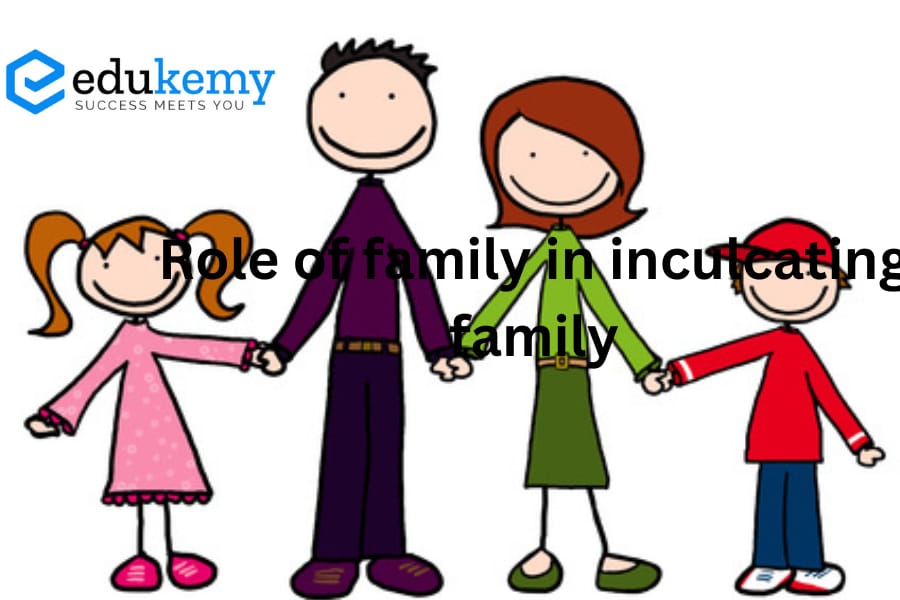
From the moment we take our first breath, our families become the cornerstone of our existence. Beyond providing shelter and sustenance, families serve as the bedrock for the development of our moral compass and the cultivation of our values. In the intricate tapestry of human society, the family unit stands as the primary crucible where principles such as integrity, compassion, and resilience are forged.
In this exploration, we delve into the pivotal role that families play in shaping the values that guide us through life’s myriad challenges. Examining the mechanisms through which familial interactions, traditions, and teachings influence our ethical framework, we uncover the profound impact that family dynamics have on our character formation.
Through intimate bonds, shared experiences, and the transmission of cultural heritage, families impart a legacy of values that endure across generations. Yet, amidst the complexities of modern life, the traditional roles and dynamics within families are evolving, prompting reflection on how these changes shape the values instilled within the familial context.
Join us as we navigate the labyrinth of familial influence, unraveling the intricate threads that weave the fabric of our moral identity. In understanding the pivotal role of family in inculcating values, we gain insights into the profound significance of familial bonds in shaping not just individuals, but societies at large.
Here are some ways in which the family can help inculcate
values:
Contents
- 0.1 Setting an example:
- 0.2 Teaching through stories:
- 0.3 Reinforcing positive behavior:
- 0.4 Encouraging empathy and compassion:
- 0.5 Creating a positive environment:
- 1 FAQs
- 1.0.1 Q: How does family contribute to the development of a child’s values?
- 1.0.2 Q: Can family values differ across cultures and generations?
- 1.0.3 Q: What role do family rituals and traditions play in shaping values?
- 1.0.4 Q: How do changes in family structure impact the transmission of values?
- 1.0.5 Q: What can families do to cultivate a values-driven environment?
- 1.1 In case you still have your doubts, contact us on 9811333901.
Setting an example:
Parents are the first role models for their children. Children learn by observing their
parents’ behavior and actions. Therefore, parents should model positive values such as honesty, respect,
kindness, and responsibility.
Teaching through stories:
Parents can teach values through stories and anecdotes. Stories have a powerful
impact on children’s minds and can help them understand the importance of values.
Reinforcing positive behavior:
Parents should reinforce positive behavior and acknowledge their children’s
efforts to display positive values. This can help children understand the importance of values and motivate
them to continue behaving in a positive manner.
Encouraging empathy and compassion:
Parents can encourage empathy and compassion in their children
by teaching them to understand and appreciate the feelings of others. This can help children develop a
sense of social responsibility and respect for others.
Creating a positive environment:
Parents can create a positive environment that encourages values such
as respect, honesty, and responsibility. This can help children develop a sense of belonging and a positive
self-image, which can further reinforce positive values.
FAQs
Q: How does family contribute to the development of a child’s values?
Families serve as the primary socializing agent for children, providing a nurturing environment where values are modeled, taught, and reinforced through daily interactions. From observing parental behavior to engaging in conversations about right and wrong, children absorb ethical principles within the familial context, laying the foundation for their moral compass.
Q: Can family values differ across cultures and generations?
Absolutely. Family values are deeply influenced by cultural norms, traditions, and societal beliefs, leading to variations across different cultures and generations. While some values may transcend cultural boundaries, such as respect and empathy, others may be unique to specific cultural contexts, reflecting the diversity of human experience and perspective.
Q: What role do family rituals and traditions play in shaping values?
Family rituals and traditions serve as powerful mechanisms for transmitting values from one generation to the next. Whether it’s celebrating religious holidays, sharing meals together, or participating in cultural ceremonies, these rituals instill a sense of identity and belonging while reinforcing core values such as unity, gratitude, and resilience.
Q: How do changes in family structure impact the transmission of values?
Changes in family structure, such as divorce, remarriage, or migration, can influence the dynamics of value transmission within families. While such transitions may pose challenges, they also provide opportunities for families to adapt and redefine their values in light of new circumstances. Open communication, flexibility, and resilience are key in navigating these changes while maintaining the integrity of familial values.
Q: What can families do to cultivate a values-driven environment?
Families can foster a values-driven environment by prioritizing open communication, empathy, and mutual respect. Engaging in meaningful conversations about ethics, encouraging critical thinking, and leading by example are effective strategies for instilling values such as integrity, compassion, and responsibility. Additionally, creating opportunities for shared experiences and community involvement reinforces the importance of living out these values beyond the confines of the family unit.
In case you still have your doubts, contact us on 9811333901.
For UPSC Prelims Resources, Click here
For Daily Updates and Study Material:
Join our Telegram Channel – Edukemy for IAS
- 1. Learn through Videos – here
- 2. Be Exam Ready by Practicing Daily MCQs – here
- 3. Daily Newsletter – Get all your Current Affairs Covered – here
- 4. Mains Answer Writing Practice – here

